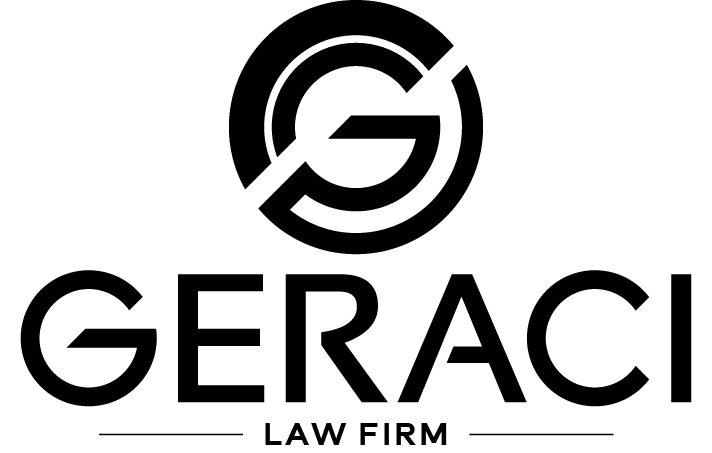A Comprehensive Guide for Consumer Mortgage Lenders
- Home
- Uncategorized
- A Comprehensive Guide for Consumer Mortgage Lenders
brought to you by:



Nema Daghbandan, Esq.
Partner, Geraci LLP
CEO, Lightning Docs

Introduction
As the mortgage landscape evolves, many consumer mortgage lenders, bankers, and individual licensed mortgage originators are exploring the lucrative opportunities in private lending. This white paper, drawing insights from the legal experts at Geraci LLP, the nation’s largest private lending law firm, provides a detailed roadmap for making this transition legally and compliantly. It will cover essential federal and state legal regulations, the importance of establishing segregation of loan activities, and the benefits of using a specialized software platform like LendingWise for business purpose loan origination.
Market Opportunity
The private lending market presents a significant opportunity for traditional consumer mortgage bankers & brokers to expand their services and tap into the growing demand from real estate investors and commercial real estate (CRE) sectors. In 2023, the total volume of residential investor loans was estimated to be between $320 billion and $400 billion, driven by the increasing appeal of investment properties and the flexibility provided by private lenders. This robust demand is supported by a liquid secondary market, ensuring that private lenders can quickly sell their loans and recapitalize to fund more loans, further enhancing the efficiency and scalability of their operations (SP Global) (Mortgage News Daily) (ATTOM).
Commercial real estate lending has also seen substantial activity, with loan origination volumes growing by 15% in 2022, reaching a record $862 billion. The CRE market includes a diverse range of asset classes, such as multifamily, office, retail, and industrial properties, each with unique investment opportunities. Private lenders have played a crucial role in providing capital for these transactions, especially as traditional banks have faced challenges due to rising interest rates and regulatory constraints. The liquidity in the CRE market, bolstered by a robust network of note buyers and securitization options, ensures a steady flow of capital for new lending activities (Trepp) (Commercial Observer).
Expanding into the private lending market allows mortgage bankers to diversify their portfolios and mitigate risks associated with traditional consumer mortgages. By offering specialized loan products tailored to the needs of real estate investors and CRE borrowers, mortgage bankers can attract a broader client base and capitalize on the lucrative returns associated with investment properties. Additionally, the flexibility and speed of private lending processes provide a competitive advantage, enabling faster closings and customized loan solutions that meet the unique requirements of each borrower. This strategic expansion not only enhances revenue streams but also positions mortgage lenders/bankers/brokers as versatile financial partners capable of supporting a wide range of real estate financing needs (Private Lender Link) (Mortgage Calculator) (ATTOM).
Access to Capital & Liquidity/ Secondary Market
One of the primary advantages of the private lending market is the availability of mature capital providers who offer a variety of funding solutions tailored to the needs of private lenders. White label table funding, for example, allows mortgage bankers to close loans in their own name or a generic name, while leveraging the financial resources and underwriting expertise of established private lenders. This setup not only provides immediate liquidity but also helps maintain brand consistency and borrower trust.
Additionally, warehouse lines of credit are a critical component in the private lending space, providing short-term funding to bridge the gap between loan origination and sale. These lines of credit offer the flexibility needed to manage cash flow effectively and scale operations without the burden of upfront capital. The commercial lending umbrella under which private lending falls further simplifies compliance and regulatory requirements, reducing loan costs, enabling quicker and more efficient funding processes compared to traditional consumer mortgage lending.
Moreover, the secondary market for trading private lending notes is highly liquid, with a robust network of note buyers actively seeking investment opportunities. This liquidity ensures that private lenders can readily sell their loans, freeing up capital for new lending activities and enhancing overall operational efficiency. By tapping into this well-established secondary market, mortgage bankers can diversify their take out partners/investors, mitigate risk, and maintain a steady flow of capital, thereby positioning themselves for sustainable growth in the private lending market for business purpose loans.
Legal and Compliance Considerations
Federal Compliance
When transitioning to business purpose private lending, particularly for “Fix and Flip” and Debt Service Coverage Ratio (“DSCR”) loans, it is important to recognize that many federal consumer protection laws do not apply. There are several reasons why they do not apply. First, a business purpose loan is generally exempt from both federal and state regulations. Second, loans made to companies (LLC’s and Corporations typically) rather than individuals are also exempt from many state and federal regulations. Below are few examples of how business purpose loans are treated differently than consumer loans (QM loans):
- Truth in Lending Act (TILA) : Since consumer protection laws do not apply to business-purpose loans, they are exempt under TILA. There are huge meaningful considerations such as:
- No Ability to Repay requirements
- No Loan Originator Compensation rules
- No Loan Estimate or Closing Disclosures and associated waiting timelines and re-disclosures
- No Higher Priced and High Cost loan restrictions
- Almost non-existent CFPB oversight of loan origination activity
- Real Estate Settlement Procedures Act (RESPA). Similarly, business purposes loans are exempt under RESPA which means mortgage lenders no longer need to be concerned with:
- No Loan Estimate or Closing Disclosures and associated waiting timelines and re-disclosures
- No Homeowner counseling
- No prohibition of the payment of referral fees
- Other Factors to Consider & Regulatory Issues
- HMDA Reporting is typically not required under the following conditions… [SEE MY E-MAIL]
- Generally, business purpose loans are not reported to credit reporting agencies
- No restrictions on the # of properties owned by a borrower, unlike Fannie Mae and Freddie Mac investor loans
- Can make business purpose loans to individual and entity investors unlike Fannie Mae and Freddie Mac Investor loans
State-by-State Compliance
Most of the country does not regulate business purpose lending even when the collateral is a single family home. However, some states do require a license to make, broker, or service business purpose loans, and may subject the loans to certain state regulations such as limitations on prepayment penalties, late fees, etc.
A few examples are below.
- California: Requires the mortgage lender to be licensed (generally as a California Finance Lender), or that the loan be arranged by a licensed California Real Estate Broker. Also imposes certain limitations of the loan, for example limiting the number of days per diem interest may be charged to the borrower if the collateral is a 1-4 family residential property.
- Hawaii: Requires a loan servicer to be licensed to service business purpose loans but does not require a mortgage lender or mortgage broker to be licensed.
- Texas: Does not require a license to make, broker or servicer business purpose loans but does restrict the maximum late charge to 5%.
State regulations vary significantly, so it’s crucial to consult with legal experts to understand specific requirements and to work with a reputable business purpose loan document provider who is fluent in the regulatory landscape of business purpose lending nationwide.
The Case for a Specialized Software Platform & Loan Documents
Because business purpose loans are generally not regulated by federal and state regulators it is imperative to segregate your consumer mortgage loans from your business purpose loans. Traditionally this would have been done through separate physical file management in the office of the mortgage lender. In today’s environment that separation must occur digitally.
Rather than try to make business purpose loans using your consumer mortgage toolkit, you will not only be frustrated by trying to fit a square peg in a round hole, but you will also expose yourself to unnecessary regulatory oversight.
A successful transition to private lending requires more than just knowing regulatory compliance. It also demands robust operational tools. This is where LendingWise and Lightning Docs comes in.
Why Choose LendingWise?
- All-In-One Platform: LendingWise combines a CRM, LOS, Marketplace, & Servicing functionalities similar to Encompass, Arrive, Optimal Blue, Floify, Doc Magic, HubSpot, Salesforce, DocuSign, and Dropbox.
- Affordability and Scalability: Ideal for single brokers like Arrive and scalable for large organizations, exemplified by our recent client CMG Home Loans.
- Smart & Efficient: Streamlines the entire lending process, from application to funding, with smart conditional logics rules based on loan product, investor overlays, property type, etc… that dynamically display fields, workflow steps, required docs, & guidelines, so users can build out a perfectly complete loan file with less back & forth.
- Compliance: Helps ensure adherence to regulatory requirements with built-in compliance features.
- Support: Provides excellent customer support and onboarding assistance, ensuring a smooth transition.

After trying several commercial lending & hard money lending systems, we have finally found the perfect CRM & LOS software platform to scale our growing business. They have numerous robust features, it’s very customizable, and they are always willing to work with our unique requirements. It’s been amazing!
Matt Flores
EVP- CV3 Financial
Why Choose Lightning Docs?
- Attorney Quality and Design. The consumer mortgage world requires the use of agency loan documentation which generally favors the borrower and was drafted by the government to protect consumers. Lightning Docs is custom built business purpose loan documents which protect the lender, loan purchasers and securitization parties. The documents were created by Geraci LLP, the nation’s largest private lending law firm.
- Modern Technology. Through a custom API integration with LendingWise, ordering loan documents is as easy as it is for your consumer mortgage loan documents to automatically generate loan documents at the click of a button.
- Maintained and Supported. Lightning Docs is a fully maintained 50 state business purpose loan document solution so you can have peace of mind knowing that your documents are always up to date and compliant.
Strategic Benefits of Transitioning to Private Lending
- Meeting Market Demand: The rising demand for DSCR , bridge, fix & flip, and ground up construction loans presents a lucrative opportunity.
- Reduced Licensing and Compliance Burden: Compared to conventional mortgage lending, private lending often involves fewer licensing requirements and compliance headaches.
- Independence and Flexibility: Many licensed mortgage brokers are moving to become independent to tap into the private lending market, offering more flexibility and potentially higher profits.
- Retaining Talent: By offering private lending products, you can attract and retain top mortgage originators who might otherwise leave for opportunities in this growing sector.
- Long Term Opportunity: This industry has matured into an estimated $300 to $400 Billion in residential investor transaction volume annually & is exponentially growing. This number grows even more if you consider the CRE asset class
Conclusion
Expanding into private/commercial lending from conventional consumer mortgage lending can be a game-changing, long term strategic move for your business. By understanding and navigating the legal landscape, and leveraging specialized software like LendingWise, you can tap into new revenue streams, meet market demands, and streamline operations.
For a detailed consultation and to explore how you can expand into the private lending sector, contact Geraci LLP, Lightning Docs, and visit LendingWise.com today.
References
- Geraci Law Firm: Geraci Law Firm Website
- LendingWise: Turnkey CRM & LOS Platform LendingWise.com
- Federal Compliance Information: Consumer Financial Protection Bureau
- Attom Data
For a detailed consultation and to explore how you can expand into the private lending sector, contact Geraci LLP, Lightning Docs, and visit LendingWise.com today.
This white paper aims to provide a thorough overview of the transition to private lending. For personalized advice and detailed legal guidance, it’s recommended to consult with legal professionals at Geraci Law Firm.